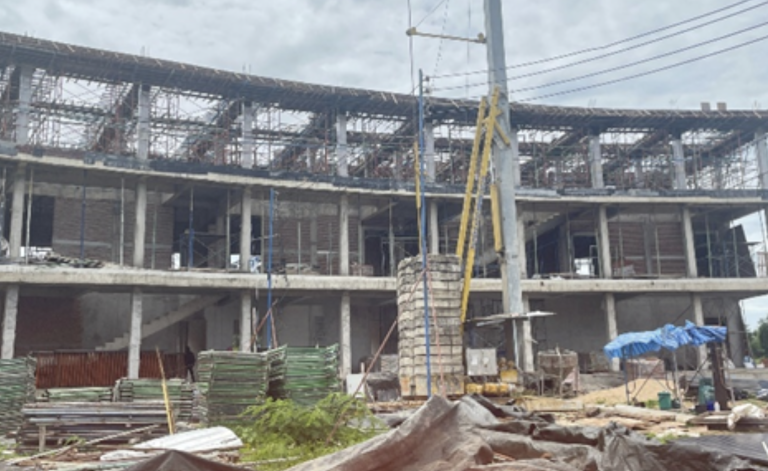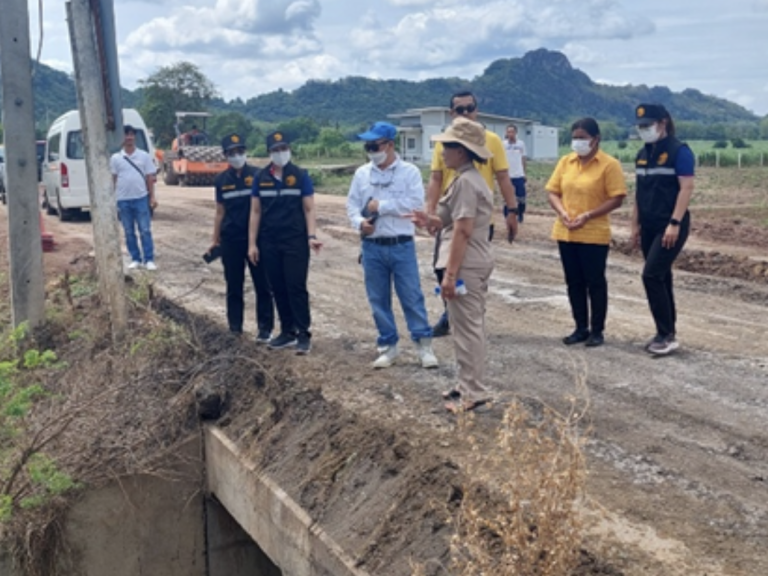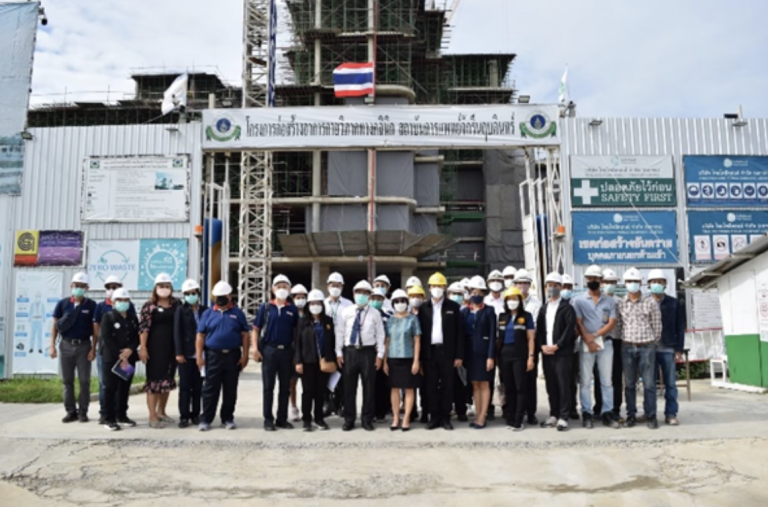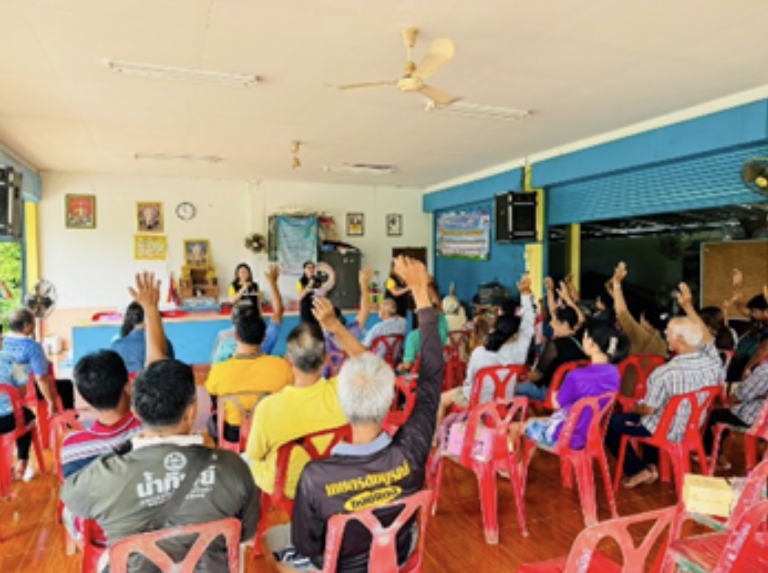Member since 2015
Prior to CoST: public infrastructure in context
Thailand is one of CoST’s greatest development success stories. It achieved upper-middle income status in less than a generation; however, average growth rates have fallen from 7.5% (1986-1996) to 3.5% (2005-2015). Over the past decade, Thailand has gone through a period of political instability, which has resulted in a decline in investment from both the public and private sectors. The country is now trapped in the middle-income bracket and has yet to transition to high-income country status. To achieve this aspiration, the country must maintain an annual growth rate of over 5% for the next 10 years.
The government has proposed significant investments in infrastructure, including several large mega infrastructure projects, valued at 4.5 trillion THB (US$127.4 billion – 33% of Thailand’s 2015 GDP). These are primarily in the transportation, energy, sanitation, telecommunication, and education sectors. However, the bulk of these investments (85%) will be made through State-Owned Enterprises (SOEs), which are widely considered to be inefficient or poorly managed.
CoST Thailand: how it all began
The Anti-Corruption Organisation of Thailand submitted a letter of engagement to the CoST International Secretariat in 2014. CoST Thailand was subsequently established in March 2015 when the Cabinet issued a resolution assigning the State Enterprise Policy Office (SEPO) to pilot the programme. It has since grown from covering just one mega-project under the Airports of Thailand to include projects under the Comptroller General’s Department (CGD) and SEPO. Data transformation has commenced and is ongoing, facilitated by online platforms.
An existing framework for transparency exists in Thailand. There are at least eight laws focused on transparency and access to information, which have provided a helpful starting point for CoST. Under this framework, 58% of CoST transparency requirements are currently mandated by law. This is of significant concern given the crucial role played by SOEs in delivering the government’s ambitious infrastructure investment plans. CoST Thailand therefore has an active role to play; firstly, to expand existing transparency requirements to meet CoST best practice, and secondly, to include additional data points pertinent to the local context, such as road safety statistics.
Multi-Stakeholder Working
CoST brings together stakeholder groups with different perspectives and backgrounds from across government, the private sector, and civil society. Through each member’s Multi-Stakeholder Group, these entities can guide the delivery of CoST and pursue infrastructure transparency and accountability within a neutral forum.
The Public Procurement and Supplies Administration Act 2017 and the Notification of the Anti-Corruption Cooperation Committee on Infrastructure Transparency Initiative set up a framework for CoST Thailand. Under this framework, the CoST Thailand Multi-Stakeholder Group (MSG) is chaired by the Comptroller-General. There are three representatives from the Comptroller General’s Department, as National Secretariat, in the MSG.
Other members include representatives from the Office of the Attorney General, Office of the Council of State, Budget Bureau, Department of Local Administration, State-Enterprise Policy Office, The Thai Chamber of Commerce, The Federation of Thai Industries, The Thai Contractors Association Under H.M. The King’s Patronage, The Engineering Institute of Thailand Under H.M. the King’s Patronage, The Commodity Management Association of Thailand, The Commodity Management Association of Thailand, Architect Council of Thailand, Anti-Corruption Organization (Thailand), Transparency in Thailand Foundation and Anti-Corruption Foundation.
According to this framework, CoST Thailand is mandated to apply the CoST approach to all infrastructure projects that have a significant impact on the public and comply with the criteria, which are:
- The top three construction projects with the highest budget under a department or other department-equivalent government agency.
- A construction project with a budget of THB five million or more under a provincial administrative organization, a municipality, or a sub-district administrative organization.
- The top three construction projects with the highest budgets are under the Special Local Governments.
- The top three construction projects with the highest budgets are under a state-owned enterprise.
- The top three construction projects with the highest budget under other government agencies, excluding those in 1 – 4.
- A construction project in which the project owner wishes to participate in CoST.
Data publication
The data publication process ensures that data about the purpose, scope, costs and execution of infrastructure projects is open and accessible to the public, and that it is data is published in a timely manner.
Thailand has advanced information systems: several dedicated data portals have already been created for infrastructure projects. Publication of data on several projects is already underway and will be scaled up over time. A unifying, single window platform for CoST publication of data was developed to further improve ease of access to information.
These portals are important milestones for CoST as internet penetration in Thailand is high, especially in the context of an upper-middle-income country. In 2025, 91.2% of the population uses the internet. This means that CoST data publication could reach huge swathes of the Thai population. However, targeted efforts should also be made to engage the broader population through more traditional publication of data channels such as TV, radio, or print media.
Since CoST Thailand’s focus on publishing project data using the CoST Infrastructure Data Standard, there has been a rapid growth in the publication of data, with thousands of projects published to date. As CoST Thailand has directed its efforts more towards raising awareness of the importance of transparency in public infrastructure delivery, greater public participation, and citizen awareness, we expect to see this trend continue.
CoST Thailand is now working to help build capacity to increase compliance and work with all relevant stakeholders to promote the establishment of new transparency norms.
Online portals
The CoST platform compliments the centralised Thai Government Procurement portal “www.gprocurement.go.th”. In May 2024, CoST Thailand launched a new website that allows users to easily access information on infrastructure projects across the country. The platform has data on more than 3,612 current projects – from bidding to completion – and enables citizens to easily provide feedback to the government departments responsible for implementing them.
Independent review
We promote accountability through the CoST independent review (assurance) process – an independent review of the published data by assurance teams based within CoST memberships.
CoST Thailand has published six independent review reports, covering a total of 77 projects. Its sixth independent review process was published in 2023, and in 2024/25, assessed 13 projects covering sectors such as transport, aviation, and flood mitigation, from procuring entities from both local and national government.
Civic engagement
Social accountability and civic engagement ensures that information on public infrastructure projects is in the public domain. CoST works with stakeholders such as the media and civil society to promote the findings of the assurance process and ensure decision makers are held to account.
CoST Thailand has embarked on a programme of public engagement that brings together local communities with the contractors and procuring entities of projects.
Through this engagement, communities raise issues about how the construction process and poor-quality infrastructure affect their everyday lives. This three-way dialogue between residents, contractors, and procuring entities is an innovative approach in Thailand and one with tangible results. From speeding up project delivery to tackling issues through improved design, it has changed how projects are carried out. Find out more about CoST Thailand’s work fostering dialogue and building trust in this impact story.
CoST Thailand Gender Inclusion
In both perception and practice, the infrastructure sector is male-dominated. CoST began the process of addressing the issue throughout 2020 by publishing a review into the CoST Thailand programme, Enhancing inclusive infrastructure: A review of gender equality in CoST Thailand. The publication provides a valuable baseline for CoST Thailand to measure progress in gender equality, with lessons for our global members to inform their approach to achieving more gender-inclusive programme delivery.
Get in touch
Chanon Chamnankit – CoST Thailand Manager
thailand@infrastructuretransparency.org
Useful Links
Website https://costthailand.gprocurement.go.th/egp-cost-public-web/#/main-web/webi/webi0001
Annual Work Plan 2025 https://infrastructuretransparency.org/wp-content/uploads/2025/04/Thailand-annual-workplan-2025.pdf



